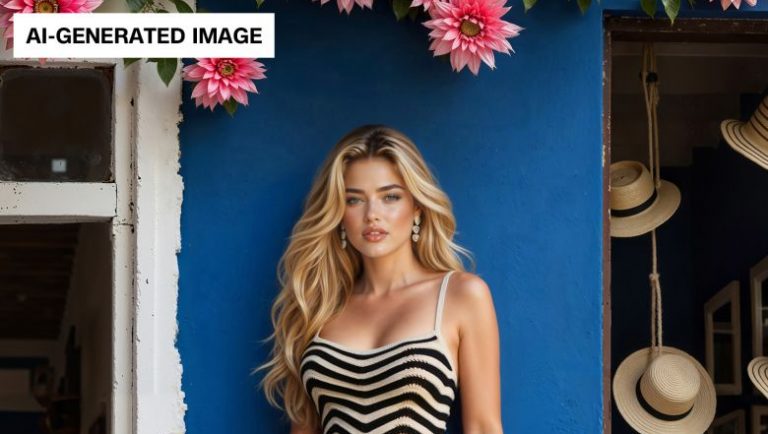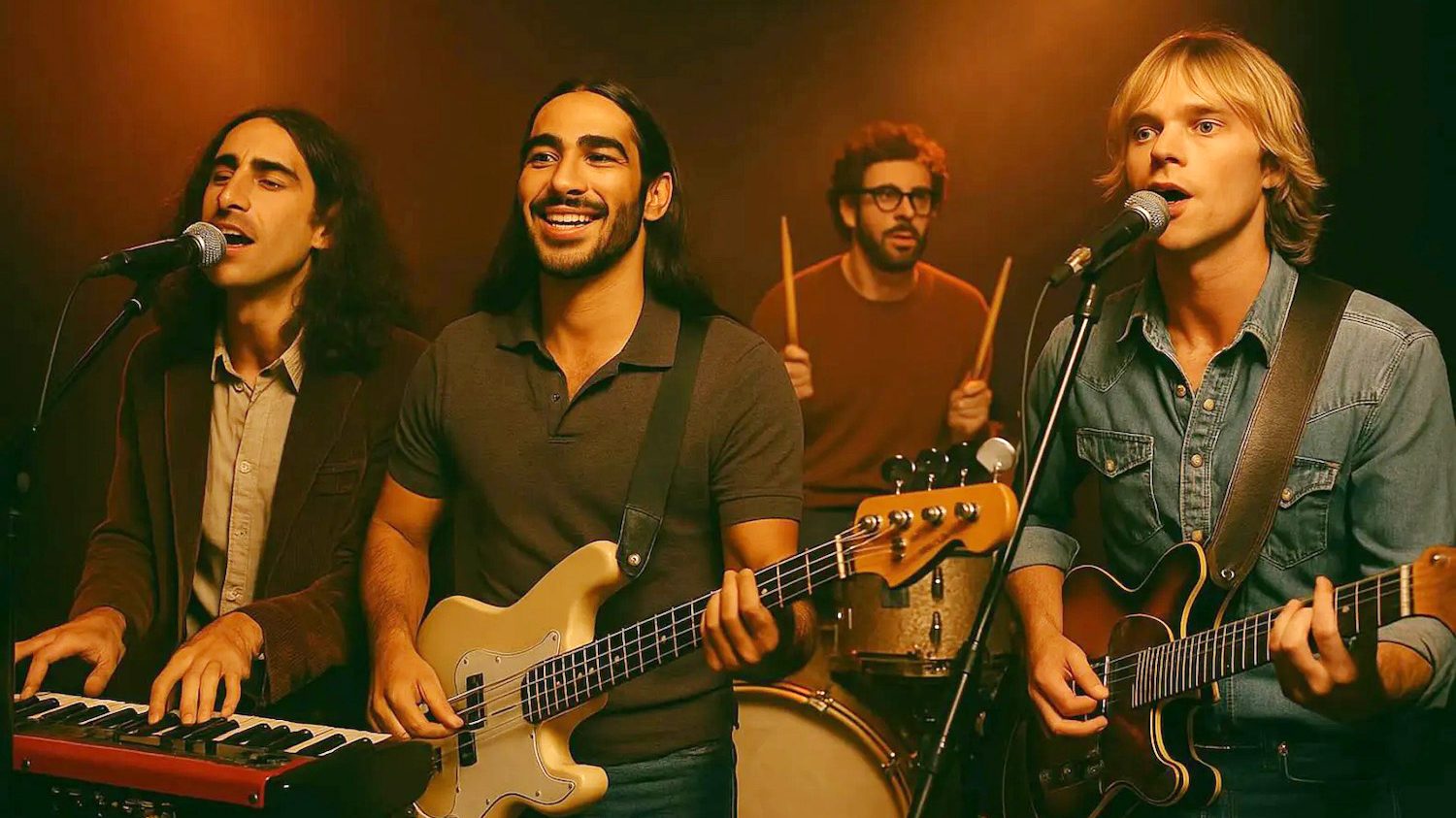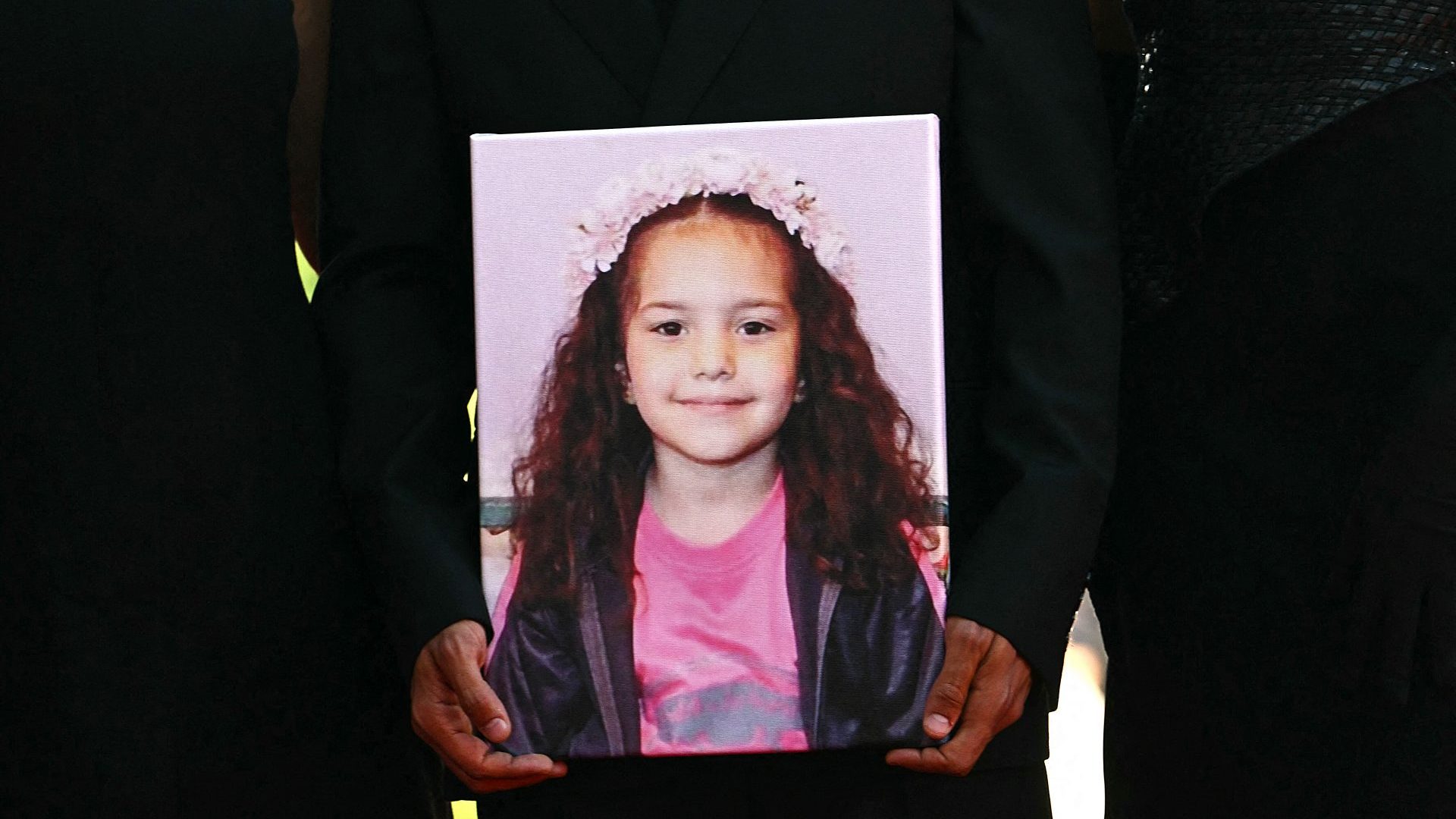Forgive me, reader, for I have sinned. Last year, upon learning about the AI music generation tool Suno, I signed up and created at least 10 songs within 30 minutes – a series of outrageously conceited bangers such as “Olive Pometsey [me], Superstar Journalist”, “Pattie [my cat] is the Best Cat Ever” and “[My personal nemesis] is a C***”.
The results were instant and addictive. I only stopped because I ran out of free credits. My first taste of AI music was a hypnotic power trip, like playing God on Top of the Pops. For once, thanks to my personalised, sycophantic pop songs, the world finally revolved around me.
It was all a joke, of course – as was my next run-in with synthetic songwriting. This time I was the gleeful listener, lapping up the viral track 10 Drunk Cigarettes, which dropped last August courtesy of the mysterious, faceless AI music makers Girly Girl Productions. Pretty much all of their tracks centre on vaping, smoking and getting blackout drunk as core pillars of modern girlhood. Riding on the coattails of brat summer, 10 Drunk Cigarettes said the not-so-quiet part out loud, juxtaposed against pop production so saccharine it would make the Tweenies cringe. In other words: it slapped.
Fast forward a year and AI tracks like these are no longer a novelty. They’re inescapable. A whole micro-genre of comedy AI music has exploded online, thriving on absurdity and TikTok pranks – take Country Girls Make Do, a filthy ode to masturbation used to prank American parents, or Predador de Perereca, an AI 80s funk remix of a real 2015 rap song, now weaponised in the same way in Brazil.
All seemingly harmless fun. Keep scrolling and you’ll see Haim dancing to Country Girls Make Do. Fall even further down the rabbit hole and you’ll be rewarded with videos of clueless boyfriends following dance routines that make it look like they’re the ones, as the song goes, “flicking [their] bean”.
But elsewhere, AI music is beginning to look less like a party trick and more like the future of the industry at large, subtly seeping into our headphones, one algorithmic push at a time. Last summer, Metro Boomin became the first major producer to use an AI sample on the Drake diss-track beat BBL Drizzy – racking up more than 3m Soundcloud streams within the first week. In what we can only assume was an act of reclamation, Drake then used the beat on U My Everything, becoming the first mainstream rapper to drop an AI-influenced track – that we know of.
To be fair, the use of AI here was accidental: Boomin used the BBL Drizzy vocal sample before he knew it had been AI-generated. But as Kristin Robinson wrote for Billboard at the time, “it’s not hard to imagine a future where producers turn to AI to create vintage-sounding samples… given that sample clearances are notoriously complicated and can drag on for months or years.”
Now, we don’t have to imagine. There are already entirely AI-generated artists climbing up the charts on Spotify and TikTok, without most of us even noticing.
The Velvet Sundown released two albums to the tune of over a million streams before anyone realised they were an AI-generated band. The song A Million Colors was used in hundreds of thousands of TikTok videos – including a Kylie Jenner makeup tutorial – before anyone clocked its digitally manufactured origins.
In fact, A Million Colors was created using Suno, the very same app I abused to feed my own ego last year. Turns out I wasn’t the only one to get hooked on the high of creating instant bangers.
Timbaland, one of the most famous producers of all time, has admitted to creating more than 50,000 songs on the platform, which he nicknames “Baby Timbo”. He’s now helming a fully fledged “AI entertainment company”, Stage Zero, complete with its first “artist”, an AI-generated pop star called TaTa.
“I always wanted to do what Quincy Jones did with Michael Jackson’s Thriller when he was [almost] 50,” he told Rolling Stone magazine. “So my Thriller, to me, is this tool.”
Suggested Reading


What happens when AI meets fashion?
As with pretty much every recent AI development, the ethical and legal implications here are vast and complex. Suno and fellow AI music company Udio have already been sued by the Recording Industry Association of America for training its models on recordings without permission – now, Germany is following suit.
At the start of the year, more than 1,000 artists including Kate Bush and Annie Lennox released a silent album to protest against training AI on musicians’ work without consent. Meanwhile, everyone from Radiohead’s Thom Yorke to Stevie Wonder and Billie Eilish have called for greater regulations and protections around the use of artificial intelligence in music.
The major concern? That AI could one day diminish the need for, and value of, human songwriters and musicians altogether.
This is where all the AI stuff gets complicated, across every industry. Those creating and endorsing these new tools insist they’re designed to enhance human work, whether they’re writing code or the next song of the summer. But when it comes down to it, most tech companies don’t really care about those principles if there’s an opportunity to cut costs and boost profits – and make no mistake, Spotify et al are tech companies.
A 2024 study predicts that workers in the music sector could lose nearly a quarter of their income within the next four years, while AI developers and providers in the same industry globally could earn €4bn. In a post-streaming landscape that’s already made it more difficult than ever before to make a living as a musician, the advent of pop songs at the push of a button could be the final nail in the coffin for an industry that has long been limping in the race to the bottom.
People love to scaremonger about AI armageddon, a sci-fi scenario in which computers become sentient and overpower humans. But right now, what’s really terrifying about the technology is how quickly it has cheapened every human skill. This, of course, is the tech bros’ greatest project.
For years, Spotify has been hard at work devaluing the work of musicians, and indeed the act of discovering new artists, filling playlists with NPC artists under pseudonyms, paid to create pacifying yet unremarkable songs with the sole purpose of keeping you listening. Swedish musician Johan Röhr, for example, has been streamed more than 15bn times under 650 different artist names – more widely listened to than Britney Spears and Michael Jackson, but a ghost in the public eye. AI music is perhaps the natural progression of this phenomenon, replacing faceless musicians such as Röhr with completely disembodied soundwaves. All algorithms, no soul.
This sterile flattening of culture is nothing new. We live in a world where Netflix is happy to admit that it’s purposefully dumbing down TV shows to facilitate simultaneous scrolling. On social media, dual split-screen videos have risen in popularity, stacking ASMR videos and video gameplay alongside podcast storytimes, lest viewers be forced to focus on one subject for a whole 50 seconds. Pop songs are getting shorter, thanks to streaming services incentivising to-the-point intros and pay-per-play reimbursement models. Audiences are so fragmented that few new artists are able to cultivate hardcore loyal fanbases, instead appearing on random playlists and blurring into background noise. The internet promises infinite possibilities – endless information at our fingertips – but algorithmically steers us towards homogeneity, dulling personal taste and critical thinking skills, one swipe at a time.
Maybe AI is the kick up the ass we all needed. If it scares you, good. Use it to jolt us out of our collective technological trance.
Some artists, such as Lava La Rue, see it as a wake-up call. “Before AI was integrated in the way it is today, I remember listening to some lo-fi alt pop playlist one of my songs was put on… and being like, ‘Everything sounds the same – my song included,’” they said in a recent TikTok video. “If a robot – or anyone for that matter – can copy your style, it kind of means that the stuff you’re making is too formulaic. Personally, that’s my sign to move on, to dig deeper.”
It’s a similar train of thought to that of historian D Graham Burnett, who sees AI’s potential to move humanities beyond academic knowledge hoarding and back to the art of thinking. As he puts it, “To be human is not to have answers. It is to have questions – and to live with them. The machines can’t do that for us. Not now, not ever.”
Why seek out musicians who, with a magic chord or a golden lyric, can articulate once-indescribable feelings, when Suno can write you a self-aggrandising pop song in seconds? Maybe the real question is what do we really want to hear: raw human mess and connection, or endless brown noise to soundtrack our workdays – slick but empty and unmemorable.
I made so many AI songs that day I’ve forgotten what most of them were about. I wonder how many of Timbaland’s 50,000 he can remember.




